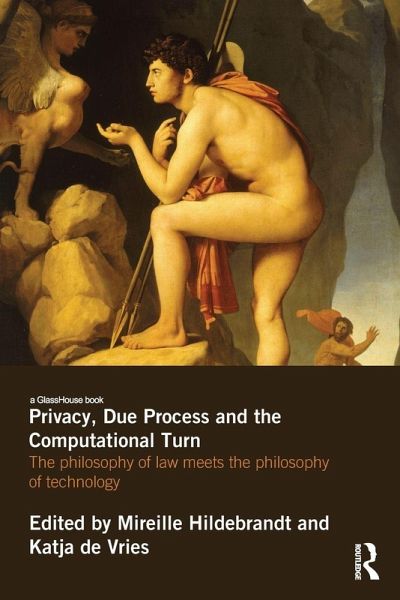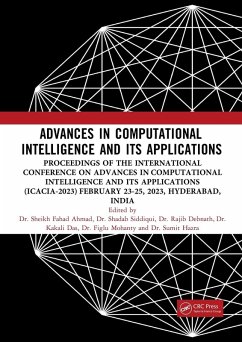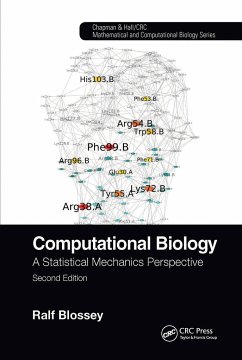
Privacy, Due Process and the Computational Turn
The Philosophy of Law Meets the Philosophy of Technology
Herausgeber: Hildebrandt, Mireille; De Vries, Katja
Versandkostenfrei!
Versandfertig in 1-2 Wochen
69,99 €
inkl. MwSt.
Weitere Ausgaben:

PAYBACK Punkte
35 °P sammeln!
Privacy, Due process and the Computational Turn: The Philosophy of Law Meets the Philosophy of Technology engages with the rapidly developing computational aspects of our world including data mining, behavioural advertising, iGovernment, profiling for intelligence, customer relationship management, smart search engines, personalized news feeds, and so on in order to consider their implications for the assumptions on which our legal framework has been built. The contributions to this volume focus on the issue of privacy, which is often equated with data privacy and data security, location priva...
Privacy, Due process and the Computational Turn: The Philosophy of Law Meets the Philosophy of Technology engages with the rapidly developing computational aspects of our world including data mining, behavioural advertising, iGovernment, profiling for intelligence, customer relationship management, smart search engines, personalized news feeds, and so on in order to consider their implications for the assumptions on which our legal framework has been built. The contributions to this volume focus on the issue of privacy, which is often equated with data privacy and data security, location privacy, anonymity, pseudonymity, unobservability, and unlinkability. Here, however, the extent to which predictive and other types of data analytics operate in ways that may or may not violate privacy is rigorously taken up, both technologically and legally, in order to open up new possibilities for considering, and contesting, how we are increasingly being correlated and categorizedin relationship with due process - the right to contest how the profiling systems are categorizing and deciding about us.














